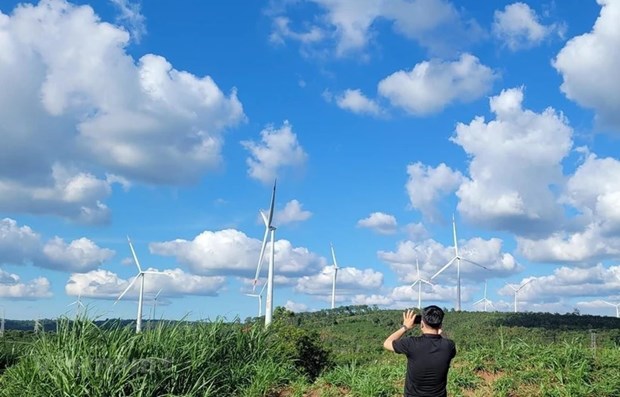Carbon market development key to green transition
Low-carbon economic development towards a circular economy is becoming an inevitable tendency in the framework of the green transition with the creation and development of carbon markets seen as an increasingly crucial tool.
Low-carbon economic development towards a circular economy is becoming an inevitable tendency in the framework of the green transition with the creation and development of carbon markets seen as an increasingly crucial tool.
The World Bank Group's Country Report on Climate and Development for Vietnam in 2022 highlights that the effects of climate change cost the country roughly 10 billion USD in 2020, approximately 3.2% of GDP. By 2050, the entire economic expense associated with climate change could reach 523 billion.
The carbon market has been identified as a key solution for Vietnam to reach its net zero goal in the near future, according to Pham Viet Bien Cuong, Director of the Centre for Environmental Protection and Response to Climate Change.
Global trade and investment are driving the development and acceleration of green standards, incorporating new requirements related to labour, the environment, sustainable development and the reduction of carbon emissions.
In addition, there is an increasing need for bilateral and international cooperation, as well as efforts related to green fields. Vietnam has a great chance to achieve its green transformation objectives and establish its place in the world's green value chains at this pivotal juncture.
Cuong also said that the basic principle of the market's operation was that polluters should compensate for their emissions into the atmosphere by exchanging and trading carbon credits.
Factories and manufacturing companies emit a certain amount of CO2. If they exceed the allowed level, they must buy more carbon credits. On the flip side, businesses emitting less than the limit can sell their extra carbon credits to those exceeding the limit , according to Cuong.
The carbon credit market plays a vital role in helping enterprises and the country's economy shift from brown to green, lowering greenhouse gas emissions and boosting national GDP and company profits.
At a seminar last week about developing the carbon market, Nguyen Minh Vu, Deputy Foreign Minister, affirmed that green transformation was a new driving force for sustainable growth and a key strategy for Vietnam to establish its position in the global green value chain.
The Organisation for Economic Cooperation and Development (OECD) highlighted the Vietnamese Government's efforts to promote green growth and sustainable development and expressed their impression of the country's commitment to net-zero emissions made at the 26th UN Climate Change Conference (COP26). They maintained that Vietnam had enormous potential for creating a vibrant, effective, and high-quality carbon market.
To date, Vietnam is one of the four nations with the highest number of investment projects registered under the clean development mechanism, having received 40.2 million carbon credits to date for 150 projects.
However, Vietnam is facing many challenges in the carbon market construction and development process, such as a lack of legal framework, international cooperation, and limit ed awareness.
To deal with these problems, Vietnam has issued a number of significant strategic initiatives on sustainable development and green growth, one of which is a development plan for instruments related to carbon pricing, particularly a market for compliant carbon.
Vietnam intends to guide the implementation of domestic and international carbon credit exchange and offsetting mechanisms in accordance with the provisions of law and international treaties, accelerate the development of regulations on carbon credit management and greenhouse gas emission quota exchange activities, and pilot a carbon credit trading floor starting in 2025./.









